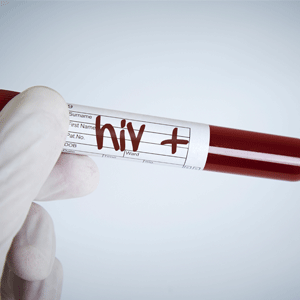Strange but True: Drinking Too Much Water Can be Risky
We’ve been told for long that drinking water and in substantial quantity are essential. Water helps in maintaining a balance of bodily fluids. Since our body contains about 60% water, these bodily fluids are required for digestion, absorption, transportation of nutrients and maintaining body temperature.
We know that drinking less water can leave you dehydrated and fatigued but what about drinking water in excess? According to new guidelines from an international expert panel, you should drink only when you are thirsty in order to avoid exercise-associated hyponatremia (EAH). The guidelines were published in the Clinical Journal of Sport Medicine.
Drinking excessive water is not good for your health as this weakens the ability of the kidneys to excrete excess water load and sodium in the body becomes diluted. This leads to swelling in cells, which can be life-threatening. Using the innate thirst mechanism to guide fluid consumption is a strategy that should limit drinking in excess and developing hyponatremia while providing sufficient fluid to prevent excessive dehydration.
Symptoms of mild EAH include lightheadedness, dizziness, nausea, puffiness and gaining weight during an athletic event. Symptoms of severe EAH include vomiting, headache, altered mental status (confusion, agitation, delirium, etc.), seizure and coma. EAH may occur during endurance competitions such as marathons, triathlons, canoe races, swimming and military exercises.
Dr. Shikha Sharma, Wellness and Nutrition Expert in New Delhi, agrees," Consuming too much water indicates the improper functioning of kidneys. Consuming water more than required can lead to unnecessary overloading on the cardiac muscles and can lower down the blood pressure."
Athletes often are mistakenly advised to "push fluids" or drink more than their thirst dictates by, for example, drinking until their urine is clear or drinking to a prescribed schedule. But excessive fluid intake does not prevent fatigue, muscle cramps or heat stroke. "Muscle cramps and heatstroke are not related to dehydration," said James Winger, sports medicine physician at Loyola University Medical Center and a member of the 17-member expert panel.
"Modest to moderate levels of dehydration are tolerable and pose little risk to otherwise healthy athletes. An athlete can safely lose up to three percent of his or her body weight during a competition due to dehydration without loss of performance," Winger said. The guidelines say EAH can be treated by administering a concentrated saline solution that is three percent sodium - about three times higher than the concentration in normal saline solution.
Dr. Anju Sood, Bangalore based nutritionist, suggests, "A healthy person should drink about 8 glasses of water every day. Water consumption should increase during summers. Someone who is on a high-fiber diet should drink more than 8 glasses of water.”
We know that drinking less water can leave you dehydrated and fatigued but what about drinking water in excess? According to new guidelines from an international expert panel, you should drink only when you are thirsty in order to avoid exercise-associated hyponatremia (EAH). The guidelines were published in the Clinical Journal of Sport Medicine.
Drinking excessive water is not good for your health as this weakens the ability of the kidneys to excrete excess water load and sodium in the body becomes diluted. This leads to swelling in cells, which can be life-threatening. Using the innate thirst mechanism to guide fluid consumption is a strategy that should limit drinking in excess and developing hyponatremia while providing sufficient fluid to prevent excessive dehydration.
Symptoms of mild EAH include lightheadedness, dizziness, nausea, puffiness and gaining weight during an athletic event. Symptoms of severe EAH include vomiting, headache, altered mental status (confusion, agitation, delirium, etc.), seizure and coma. EAH may occur during endurance competitions such as marathons, triathlons, canoe races, swimming and military exercises.
Dr. Shikha Sharma, Wellness and Nutrition Expert in New Delhi, agrees," Consuming too much water indicates the improper functioning of kidneys. Consuming water more than required can lead to unnecessary overloading on the cardiac muscles and can lower down the blood pressure."
Athletes often are mistakenly advised to "push fluids" or drink more than their thirst dictates by, for example, drinking until their urine is clear or drinking to a prescribed schedule. But excessive fluid intake does not prevent fatigue, muscle cramps or heat stroke. "Muscle cramps and heatstroke are not related to dehydration," said James Winger, sports medicine physician at Loyola University Medical Center and a member of the 17-member expert panel.
"Modest to moderate levels of dehydration are tolerable and pose little risk to otherwise healthy athletes. An athlete can safely lose up to three percent of his or her body weight during a competition due to dehydration without loss of performance," Winger said. The guidelines say EAH can be treated by administering a concentrated saline solution that is three percent sodium - about three times higher than the concentration in normal saline solution.
Dr. Anju Sood, Bangalore based nutritionist, suggests, "A healthy person should drink about 8 glasses of water every day. Water consumption should increase during summers. Someone who is on a high-fiber diet should drink more than 8 glasses of water.”



Comments
Post a Comment